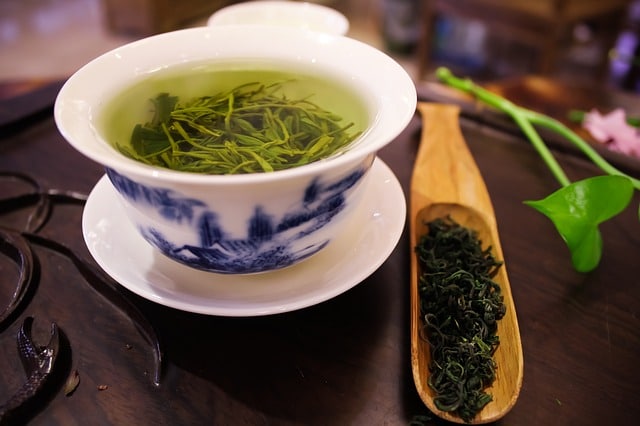The prooxidant behavior of green tea polyphenol modulates gene function producing certain enzymes that lead to longer life and greater fitness in nematodes.
Green tea has long been known to have health benefits. In particular, it contains catechins called ECG and EGCG that are said to prolong life. These two substances belong to the group of polyphenols. They are considered antioxidants, which means they counteract or prevent oxidative stress in the body caused by aggressive free radicals of oxygen.
Until now, research has assumed that the catechins neutralize these free radicals and thus prevent damage to cells or DNA. One source of oxygen free radicals is metabolism; for example when the mitochondria – the powerhouses of the cell – are working to produce energy.
ETH researchers led by Michael Ristow, Professor of Energy Metabolism at the Department of Health Sciences and Technology at ETH Zurich, together with colleagues from the University of Jena, have now taken a closer look at how catechins act in the nematode worm C. elegans. And they have come to a different, seemingly paradoxical conclusion: rather than suppressing oxidative stress, the catechins in green tea promote it.
More Read
Temporary Increase in Oxidative Stress
In a study just published in the journal Ageing (Tian et al., 2021) Ristow’s team shows that these polyphenols from green tea initially increase oxidative stress in the short term, but that this has the subsequent effect of increasing the defensive capabilities of the cells and the organism. As a result, the catechins in green tea led to longer life and greater fitness in nematodes that were fed to them.
“That means green tea polyphenols, or catechins, aren’t in fact antioxidants, but rather pro-oxidants that improve the organism’s ability to defend itself, similar to a vaccination,” explains study leader Ristow.
However, this increase in defensive capability manifests not through the immune system, but rather by activating genes that produce certain enzymes such as superoxide dismutase (SOD) and catalase (CTL). It is these enzymes that inactivate the free radicals in the nematode; they are essentially endogenous antioxidants.
Sport and Calorie Reduction Have a Similar Effect

Ristow isn’t surprised to see this kind of mechanism at work. His research group showed back in 2009 that the reason sport promotes health is because sporting activities increase oxidative stress in the short term, thus improving the body’s defenses. Consuming fewer calories has the same effect, as has been shown several times in animals. Mice fed a reduced-calorie diet live longer than those fed a normal, high-calorie diet. “So it made sense to me that the catechins in green tea would work in a similar way,” Ristow explains.
He goes on to say that the findings from this study translate well to humans. The basic biochemical processes by which organisms neutralize oxygen free radicals are conserved in evolutionary history and are present in everything from unicellular yeast to humans.
More Read
Green Tea Yes, Concentrates No
Ristow himself drinks green tea every day, a practice he recommends. But he advises against taking green tea extracts or concentrates. “At a certain concentration, it becomes toxic,” he says. High-dose catechins inhibit mitochondria to such an extent that cell death ensues, which can be particularly dangerous in the liver. Anyone consuming these polyphenols in excessive doses risks damaging their organs.
While most catechins are to be found in Japanese varieties of green tea, other green teas also contain sufficient amounts of these polyphenols. Black tea, on the other hand, contains a much lower level of catechins, since these are largely destroyed by the fermentation process. “That’s why green tea is preferable to black tea,” Ristow says.




















